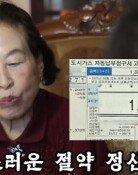Chinese Products Inseparable from Seollal Table
Chinese Products Inseparable from Seollal Table
Posted February. 05, 2008 03:01,
On this years Seollal, or Lunar New Years Day, Chinese agricultural and fishery products will likely dominate the Korean tables for memorial services.
Although the safety of Chinese foods has created heated debates in Japan after pesticide-contaminated dumplings from China prompted a nationwide food scare, Koreans will find it difficult to exclude Chinese food products from their offering tables since Chinese food items are more than twice cheaper than those of Korea.
Ahead of the Lunar New Years holidays, the Dong-A Ilbo went to three shopping places in Seoul - Lotte Mart in Sunhwa-dong, Jung-gu, Kims Club in Jamwon-dong, Seocho-gu, and the Gyeongdong Market in Jegi-dong, Dongdaemun-gu to find out whether it is possible to set the table for an ancestral rite without Chinese products.
○ Mung Bean Sprouts and Traditional Korean Sweets and Cookies
Customers the Dong-A Ilbo interviewed complained about Chinese food ingredients in chorus. However, they said that they have no choice but to purchase Chinese products because they are cheaper and it is difficult to find Korean products.
None of traditional Korean sweets and honey cookies were made with 100 percent Korean ingredients. The portion of domestic glutinous rice in honey cookies was merely 20 percent. The rest was Chinese glutinous rice or American and Australian wheat flour. The yellow croaker, which is also put on offering tables, was all Chinese.
All mung bean sprouts found in the Gyeongdong Market was Chinese, and the two large discount stores sold only one domestic product, a 400 gram package with a conglomerate logo on.
We usually sell Chinese products only because no one looks for Korean products, said Jin Seong-soon, 46, a vegetable saleswoman at Kims Club in Gangnam, Seoul. We have displayed a packaged mung bean sprout product from a conglomerate because of the Lunar New Years Day.
Regarding dried Alaska pollack, a must for the New Years ceremony, none of the three places sold a domestic one. They were all from Russia.
However, none of fruits in season, such as apples and pears, were from China because the imports of those fruits are banned. It was also hard to find Chinese beef and pork.
○ Chinese Vegetables 4 Times Cheaper
Even if both Korean and Chinese products are available, a considerable number of people chose Chinese products because of big price differences.
One pack of 10 domestic dried persimmons was 5,800 won while that of China was less than 3,000 won.
A 500 gram of domestic peeled mung beans for omelets was 6,400 won, while that of China was only 2,200 won. Chinese fernbrake and platycodon roots were also four times cheaper than those of Korea.
wiseweb@donga.com behappy@donga.com







